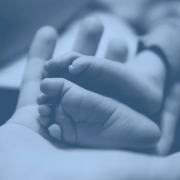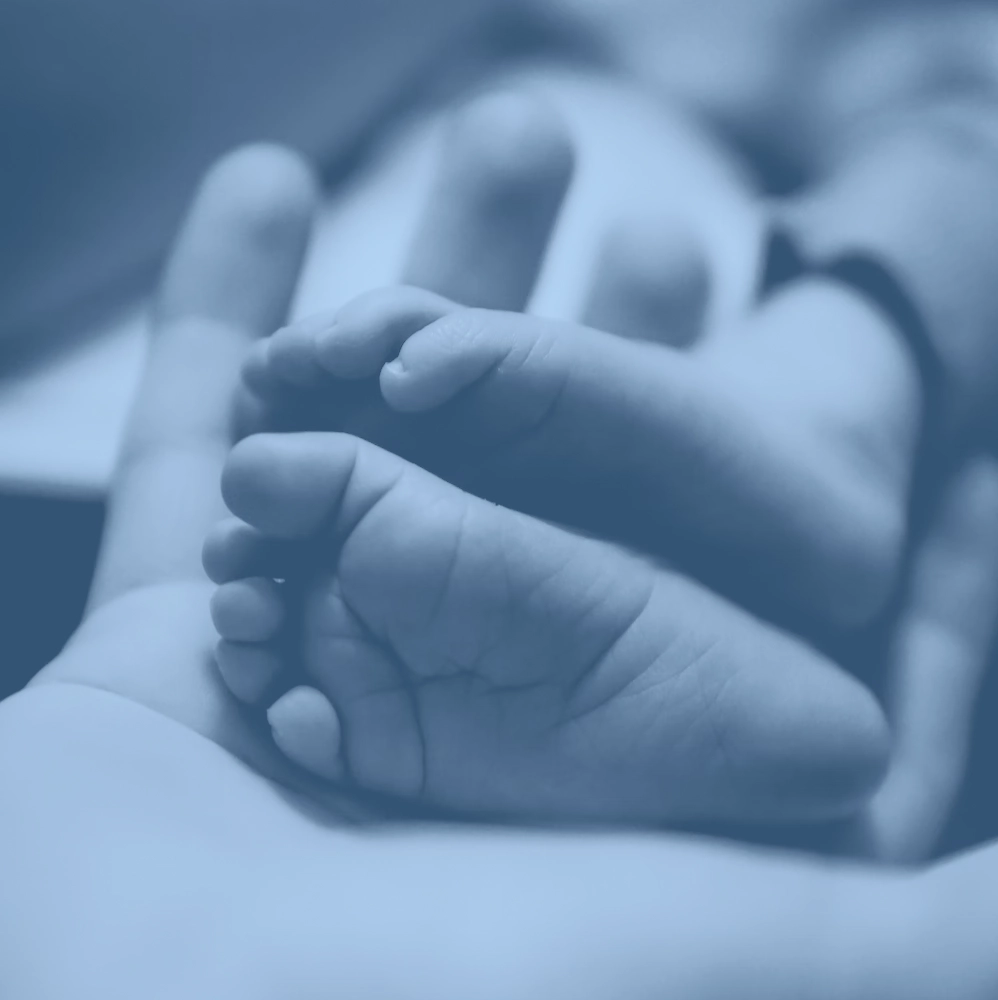Overcoming Grief During Immigration
By Alan Siggelkow
Words that describe the impact of imigration on three generations post immigration
Even when I am old and gray, do not forsake me, O God, till I declare your power to the next generation. Psalm 71:18
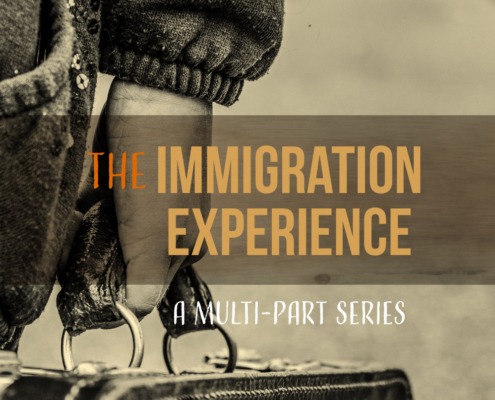
Packing our life in 8 suitcases…
Purpose
The purpose of this immigration story is to share our family’s experience and allow others to compare their family’s experience to ours. What things do we people living in America share in common with each other as far as immigration is concerned? Another purpose is to encourage therapists and pastors to explore immigration issues with clients and members. A third purpose is to encourage immigrants to share their stories as a help to their healing and as a legacy to younger generations of their families. This blog is not scientifically researched. It is Christian and theologically driven.
Things my Grandfather told me.
It is with a lot of uncertainty that I share this story of immigration. Is it accurate? I did not experience it. I am writing this in 2024. My Grandfather, Paul Siggelkow, and Grandmother, Ida, came to the United States from Germany in 1912 on the ship, President Lincoln.
I will be relating stories my Grandfather told me in the late 1950s and the early 1960s. So, this is oral history passed down through several generations. I was able to check my Grandfather’s account a little by comparing what he told me to the recollections of his eldest daughter, Gertrude (Koepsell). She was three when they arrived at Ellis Island in New York. My other aunt, Paula (Rabinak), was about one year old. My father, Henry, would be born in America in 1919. I thank my cousin, Art Koepsell, for sharing my Aunt Gertrude’s memories with me. They were written for her grand-children.

I would like to divide my story into several sections:
- Change
- Fear
- Loss
- Prejudice and Persecution
- Lessons Learned for the second and third generations
- Lessons I learned from my Grandpa
- The impact on my thoughts about present-day immigration
- A Scriptural Perspective
- Change: Germany to America
Grandpa was born in 1888. He described his life in Germany as what I would imagine to be quite typical of the time. His father, Heinrich, had fought in three wars for the Kaiser before he was married. Heinrich was traveling back home from the last war when he came through a village and my Grandpa said, “There he saw the most beautiful girl in the world, my mother.” My Great-grandmother raised her daughter and two sons without allowing them to go to church. The rulers of Germany had demanded that the churches in the land be a combined Lutheran and Reformed faith and my Great-grandmother was going to raise her children to be Lutheran. She told her children that the pastors did not teach Luther’s teachings so she taught them herself.
Great-grandpa was a carriage builder. Grandpa became a blacksmith and his brother, William, became a carpenter. Grandpa began his blacksmithing as an apprentice at age 14. He did his journeyman work at various shops in Northwestern Germany, including one on the Elbe River, out-fitting fishing boats. He worked as a master smith shoeing horses in Hamburg, Germany.
In 1912, Great-grandpa told his sons, “I smell gun powder and this time I believe that Germany will lose. I want you boys to think about moving to either South Africa or America.” My Grandpa’s sister, Anna, had already come to America at age 14 to serve as a nanny on a ranch in Montana. She had moved to Milwaukee and was working at Concordia College as a house keeper. Grandpa and his brother and their families came to Milwaukee.
My Grandpa did not talk about his emotions very much. But he did say that when they took a train from New York to Milwaukee, he saw how dirty it was and he thought, “I left Germany for this?”
- Fear
They arrived in Milwaukee and were befriended by members of Holy Ghost Lutheran Church. My Grandfather enrolled in what we would call, English as a Second Language Class, at the church. Their text-book was Luther’s Small Catechism. The book was in German and English. When you held it open one page was German and the opposite page was English. Grandpa and his family were attending church and learning a new language and culture and the importance of faith in their lives from people who cared about them.
But before he learned any English he had to get a job to earn some money. Someone pointed him to a blacksmith job opportunity in North Milwaukee along Villard Avenue. Grandpa described standing at the trolley car stop, praying that he could find the right street and get the job. The trolley car stopped and the conductor opened the door and looked at Grandpa in his German clothing. The conductor shouted out the door in German, “Wo willst du gehen?” “Where do you want to go?” Grandpa said he thanked God and found the right place and got the job. God was with him.
- Loss:
I don’t believe my Grandfather ever saw his beloved mother again. After World War I Grandpa found out that the artillery unit he had belonged to in Hamburg, Germany, was completely wiped out during the first two weeks of the war. The ship they had traveled on to get to America was sunk during the first year of the war. World War I broke out and the USA was leaning more and more towards joining the fight against Germany.
I never heard my Grandfather speak German. He had learned English shortly after immigrating. My Grandmother once told me that she did not think Grandpa could read German Script (cursive hand-writing) any more. She had to read the letters from relatives back in Germany to him. Did he lose the language of his birth? He could speak English and he was gainfully employed and would own property and vote. He came into the United States by legal channels and was soon a citizen. The USA went to war twice against Germany during my Grandpa’s lifetime. Perhaps that had something to do with him not speaking German. In those early years when he and his family attended Lutheran church services every Sunday the service was all in German. But I knew my grandpa 30 years later. He attended English services then.
Did he lose the culture of his birth? Grandpa asked my brother if my brother was ashamed of his German heritage. My brother was not. Grandpa was happy. But there must have been a sense of loss or displacement or shame that was still there 60 years after he immigrated for him to ask that question.
- Prejudice and Persecution:
During World War I the recruitment posters for the US Armed Services depicted the Germans as “Huns.” They are pictured big and strong and blond and have sharp teeth with blood on their mouths and their hands. Prejudice was strong. Germans were the enemy. US federal agents, working undercover, were spying on the actions and words of Lutheran pastors at that time. Some pastors were imprisoned for not preaching from the pulpit that their members should buy war bonds to support the war, even though the bonds were sold after the church services in the back of the church.
Grandpa read about land for sale in a Milwaukee paper and bought some land in Northern Wisconsin near present-day Hiles. Huge trees were recently cut down on the land by the lumber companies. The land was cheap. He moved with his family to what they hoped would be their farm. But the advertisements did not mention the large stumps and huge boulders that had to be moved to make it into farm land. Grandpa was working as a blacksmith for the Fish Lumber Company as he tried to clear the land for his farm.
During World War I the US government did not allow Grandpa to leave the farm. He was not allowed by the government to move from the farm. He had his hunting rifles and all his weapons taken away. He was subsistence farming and he could not hunt to provide for his family. Even though he was an American citizen, he was still a German immigrant. Germany was the enemy of America and Grandpa and his family had recently come from Germany. He told me that he had planned to clear the land and build a house and barn on it and sell it for a profit after three or four years. He talked about the difficult financial problems these restrictions prohibiting him moving and not allowing him to have a hunting rifle gave him. He had planned to sell the farm at a profit after three or four years once he had cleared the land and built buildings on it. He was not allowed to move from the farm and so it was twelve years instead of three or four years before he could sell the farm at a profit. He said, “For those 12 years we were on the farm we never had much money, but we sure ate well.” God took care of them.
Grandpa talked about his daughters being persecuted in school because they were German and spoke German at home. In her memoirs, written for her grand-children, my aunt does not mention this, but she told stories to her children about it. She does mention how much she liked her teacher, Miss Horne. In first grade she was asked by Miss Horne to say in English, “I see the boy.” She knew what “I” meant and what “boy” meant. But what did “seeda” (see the) mean? All she could think of was the “cedar” wood that my Grandma used as kindling to start a fire in the kitchen stove. Language made things difficult. She and her teacher and the other students seemed to have laughed about this.
Grandpa reported that he was asked during World War I if he served in the German army when he lived in Germany. He said, “Yes.” “How did you like it?” was the next question. He said, “I loved it.” He did not help himself escape persecution. He explained to me that he loved the army service because he had been in a smoky blacksmith’s shop since he was 14 and in the army he got to ride horses in the open air during training. Unfortunately, his listeners probably viewed his words in a more dangerous way.
Later, just before World War II, my Grandpa had a mustache that extended in a vertical strip from his nostrils to his upper lip. It was just like Adolph Hitler’s mustache. My Grandpa’s barber told him, “Paul, I am going to do you a favor,” and shaved the mustache off.
- The impact of my Grandfather’s immigration experience on future family generations
My father, served in the US Armed Forces in the South Pacific during World War II. He desperately wanted to go to college in the 1930s, but it was the time of the Great Depression and they could not afford it. My father became a master plumber instead. He brought his family to church for worship every Sunday. My mother taught Sunday School classes for much of her adult life. God’s Word was a part of our inheritance. Our parents had learned God’s Word from their parents and we learned it from our parents. Hard work was another lesson we learned. My father built two bedrooms and a bath upstairs in two homes they lived in and remodeled a kitchen, a basement, and several bathrooms in those homes. Family was important and we spent many great times with our cousins. God blessed my father with long life. Like my Grandfather, he kept busy well into his 90s with all kinds of projects. He did the wood working and my mother did the art work on the many things he made.
What is the impact of my Grandparent’s immigration experience on my children? It is not as direct as it was on my father and me. It has to do with how my wife and I learned to live our lives and set our values and how we show these values to our children and grand-children. Recently, in my retirement, I am trying to share what I learned from my Grandpa’s immigration experience with my grand-children. That means that I intentionally tell my grand-children the stories my grandfather told me. I share. I communicate. Sometimes they may appreciate it. Sometimes they may not. But the communication is important. How will they know if they have not been told?
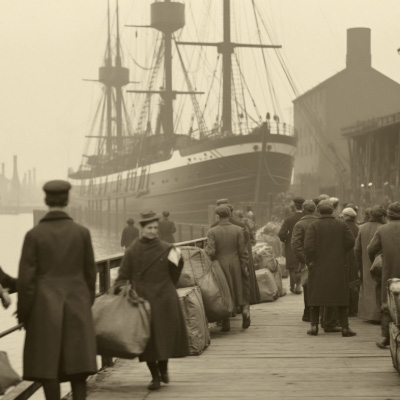
- Lessons I have learned from my Grandpa:
- Hard work is necessary, enjoyable, and rewarding. God gives specific gifts to each of us. Grandpa worked hard all his life using his gifts. He said that when they moved to northern Wisconsin to the farm the road ended three miles from their homestead so he carried the finished lumber the three miles on his back from the wagon to the farm. He built that house and later built several rental cottages for his brother-in-law. He worked well into his 70s. His last job was as a tool and die maker in Milwaukee. In his retirement, he gardened and made furniture for his children and grand-children and repaired his neighbor’s lawn mowers. God had given him skills and he used them.
- Education is important. Grandpa did not have much formal education. But he was a voracious reader. He learned by doing. He built a row boat and a sail boat by hand. He encouraged me and all of his other grand-children to pursue higher education. We grand-children are two Lutheran pastors, three Lutheran school teachers, two nurses, and one social worker/criminal justice worker. His personal education in his retirement was what he learned from his extensive travels around America during those years. The different people and places were exciting for him.
- The church and God’s Word is the guide for our lives and the joy of our eternity. There we learned about Jesus. Grandpa attended church regularly once he came to America. He was president of at least two of the three congregations at which he was a member. He encouraged his grand-children to get Christian education and to serve the church by doing so. My father was president of his congregation and served the church on various boards and committees. My father also sang in the church choir for about 52 years. My grandfather once confessed a sin of his youth to me. I assured him of God’s forgiveness through faith in Jesus. He was at peace and so was I. My Grandpa’s last words to me were: “I will see you next in heaven.”
- The Impact On My Thoughts Regarding Present-day Immigrants:
Clients often need to share and therapists need to know about the immigrant experiences of their clients. How much of my Grandpa’s story do you see in your immigrant story or in the story of your client in your therapist’s office? Therapists need to ask and explore their client’s immigration experiences. They will all be different. But they are all important. They may involve trauma or past sins or fear or loss. These immigrant experiences, even for the second and third generations, may have shaped their lives in ways that will be helpful for therapists to know as they seek to provide Christian Counseling to their clients. I would suspect that fear and anxiety and loss will be consistent themes in the stories. Many stories may involve escaping from something in the country of origin and seeking something better in a new country. The immigrant experiences of families shape the values and thoughts of individuals in those families. Each story will be unique to the individual. Listen carefully.
Prejudice: We are all blood-bought souls who are precious to God. Some political ads today talk about immigrants as being murderers and rapists and illegals. My grandpa was a legal immigrant and already an American citizen, but he was a cruel, rapist, invading Hun in the minds of some because he was German. On the other hand, my Grandpa did not speak kindly about people he viewed as ignorant. In the context of his words to me, ignorant meant uneducated and different from him. How much of that was prejudice? Was a person who experienced prejudice also showing prejudice? Aren’t we all racists at times? Don’t we all fear those who seem to be different? Share how we are all a part of God as his children, created and redeemed and loved by him with clients and with your family. Don’t expect that those who have experienced racism will not have racist thoughts themselves.
We are all God’s children. God’s Kingdom is inclusive. We like to classify people as “the same” and “the others.” God does not do that. On the day of Pentecost, look at the record of nations in the church of Christ. Acts 2:9-11 God sent His Son Jesus to pay for the sins of every human being on the cross and Jesus did that perfectly, as proven by His resurrection from the grave. Every human being is special to God because Jesus has died for the sins of the world — no one is left out. II Corinthians 5:19 “God was reconciling the world unto himself in Christ, not counting people’s sins against them. He has committed to us the message of reconciliation.” Every human being is a precious soul to God. Every human being is a precious soul to those who believe in God. We Christian therapists need to speak, live, act, and counsel that truth. Our clients need to be reminded by God’s Word how much He loves them. They are his children. Skin color, race, culture, language, political persuasion, national identity – the human differences in size, shape, language and work and education opportunity — don’t matter to our God of love. They should not matter to us. All of God’s children need to communicate God’s love to each other. We are all God’s children.
Each immigrant is a valuable addition to our society, culture, and church. The history of American agriculture, science, art and culture, religion, politics, manufacturing, and education and many other areas has been enriched by immigrants sharing the blessings that God has given to them through the national life and culture of the country of their birth to enrich American life and culture. When they trust in their Savior, they are our brothers and sisters in Christ. When they do not believe in Jesus, they still are souls beloved by God.
Immigrants are the best of their homeland. In most cases immigrants are the people who are the adventurous frontiersmen of modern society. They are generally hard-working, brave, and gifted. They leave to start again. They are the modern-day Native Americans who moved from Asia into the Americas. They are the modern-day colonists who came to this new land. They are people with commitment and daring and strength and hope who leave to escape danger and seek safety. They leave with hope in their hearts and trust in their souls. When they share a trust in Jesus as their Savior with us, we and they are members of God’s Kingdom together. But we are all God’s creation and we all are loved by him.
How quickly we assimilate into American culture.
My brother told me that when Grandpa asked him about his feelings about his German heritage, he was in his late teens and thought of himself as an American. I thought back and I don’t think I thought about having a German heritage until my Grandpa began talking to me. My brother and I agree that we were very self-absorbed in our own teen lives. We just did not think about the immigration struggles of older family members. We wonder today what the impact of World War II against the Germans had on our thinking. The war ended only 12 years before my Grandfather told me his stories.
Immigrants should share their stories within their families. Their stories enrich the generations that follow. This is how they can lead and show their future generations that life is more than work. It is rejoicing in the blessings of God as He blesses their boldness and their trust in Him. Much in current American culture might make immigrants and their children feel ashamed or feel like they are not like those who are here before them. We are all immigrants or members of immigrant families in our country. Share your stories with pride. For some of our families, the immigrant generations are the heroes of our families.
Be honest about sin and grace when sharing stories.
When we tell our stories, we will be talking about successes and failures of people in our families. Heroes have faults also. They were sinners just like we are. Jesus is their Savior as he is ours. Not every bad thing about our immigrant relatives or about our immigration experience needs to be shared or highlighted with our children and grand-children. We do, however, learn from the mistakes of others. Share what builds up and strengthens. Work hard at stressing God’s love and support and care as it is demonstrated in the lives of our immigrant family members. Talk about the sins of past family members and about the wonderful forgiveness of God to them in Jesus Christ.
- A Scriptural Perspective
The following thoughts are a part of the impact of the words of God in Scripture that flow through my mind as I write this essay. This will not be all-inclusive on the subject of immigration.
God sent Jesus to die for the sins all people in all the world.
We are all sinners in need of a Savior.
Romans 3:23 “There is no difference between Jew and Gentile, 23 for all have sinned and fall short of the glory of God, 24 and all are justified freely by his grace through the redemption that came by Christ Jesus.”
We all have the same Savior.
II Cor. 5:19 “God was reconciling the world to himself in Christ, not counting people’s sins against them. And he has committed to us the message of reconciliation.”
I John 2:1-2 “My dear children, I write this to you so that you will not sin. But if anybody does sin, we have an advocate with the Father—Jesus Christ, the Righteous One. 2 He is the atoning sacrifice for our sins, and not only for ours but also for the sins of the whole world.”
We all are ambassadors for Christ. God is using us to proclaim his message of love to all people.
II Cor. 5:20 “We are therefore Christ’s ambassadors, as though God were making his appeal through us. We implore you on Christ’s behalf: Be reconciled to God.”
God’s Old Testament message of community applies to us.
It applies with two disclaimers, as I quote from an essay by Professor Kenneth Cherney of Wisconsin Lutheran Seminary
“The following disclaimers may be so obvious that stating them is unnecessary, but I will state them anyway. Number one: The United States of America is not sixth-century Judah. Judah was a constitutional monarchy: the Torah was its constitution, the house of David was its monarchy, and both were established by God. The USA, on the other hand cannot claim divine origin or sanction for either its form of government or its leadership. For us believing Americans, our closest analog is the Judahites living post-586 BC in exile in Babylon Jer. 29:4-7, not pre-586 BC in Judah under the house of David. Furthermore, today the analog of Jeremiah’s Judah is the visible Christian church, not the USA. Since our nation was founded, no end of harm has been done by equating Americans (at least, the ones whose ancestors came from Europe) with the people of God. The current rise of Christian nationalism shows that the confusion has not ended; in fact, as we enter another election cycle, it may be just getting started.
“Disclaimer number two: the Wisconsin Evangelical Lutheran Synod (WELS) is also not sixth-century Judah.“ (Cherney, Kenneth, “To Pull up and to plant: Jeremiah Preaches to a Nation in Crisis,” Wisconsin Lutheran Quarterly, Vol. 121, No. 3, Summer, 2024).”
The message of Jeremiah applies to us because sin remains sin and repentance remains repentance and gracious forgiveness from God remains gracious forgiveness from God for all people of all generations living at every age in the history of this world.
Lev. 19:18 “Love your neighbor as yourself.”
John 15:12 “ My command is this: Love each other as I have loved you.”
Mark 12:30-31 “ Love the Lord your God with all your heart and with all your soul and with all your mind and with all your strength.’ 31 The second is this: ‘Love your neighbor as yourself.’ There is no commandment greater than these.”
Jer. 7:4-6 “Do not trust in deceptive words and say, “This is the temple of the Lord, the temple of the Lord, the temple of the Lord!” 5 If you really change your ways and your actions and deal with each other justly, 6 if you do not oppress the foreigner, the fatherless or the widow and do not shed innocent blood in this place, and if you do not follow other gods to your own harm, 7 then I will let you live in this place, in the land I gave your ancestors for ever and ever.” Social justice is important to God. Jeremiah is speaking the words God instructed him to preach to the people of Judah of his day. These words apply to us today in the land our immigrant ancestors moved to as we consider our actions and attitudes towards those who are joining us as our neighbors in the earthly nation God has allowed us to inhabit with them.
Eph. 2:19-22 “You are no longer foreigners and strangers, but fellow citizens with God’s people and also members of his household, 20 built on the foundation of the apostles and prophets, with Christ Jesus himself as the chief cornerstone. 21 In him the whole building is joined together and rises to become a holy temple in the Lord. 22 And in him you too are being built together to become a dwelling in which God lives by his Spirit.” God builds up his Kingdom from every nation, even our own. His Kingdom is built on the foundation of the Word of God and not on any racial or national foundation.
Matthew 28:18-20 “ Then Jesus came to them and said, ‘All authority in heaven and on earth has been given to me. 19 Therefore go and make disciples of all nations, baptizing them in the name of the Father and of the Son and of the Holy Spirit, 20 and teaching them to obey everything I have commanded you. And surely I am with you always, to the very end of the age’.” Jesus tells us about the power of his love and gives us a command to share the message of that powerful love to all people. He gives all of his believers a beautiful and comforting promise, even when change seems so frightening.
The early New Testament Church involved people of all nations from its very beginning on the Day of Pentecost. Acts 2:8-11 “8 Then how is it that each of us hears them in our native language? 9 Parthians, Medes and Elamites; residents of Mesopotamia, Judea and Cappadocia, Pontus and Asia, 10 Phrygia and Pamphylia, Egypt and the parts of Libya near Cyrene; visitors from Rome 11 (both Jews and converts to Judaism); Cretans and Arabs—we hear them declaring the wonders of God in our own tongues!”
Conclusion
The immigration of people from one part of the world to another has been going on since the creation of the world when God created Adam and Eve. Their descendants have been moving from place to place for all of history. Noah’s descendants continued the movement, especially after the Tower of Babel event. In more modern history we have seen empires rise and fall because of the movement of peoples. The Visigoths moved into Italy and Spain. The Franks moved into France. The Goths and the Mongols Scandinavians, Poles, Danes, and just about everybody moved into Germany. The Angles and Saxons moved into Britain. The Native Americans moved into the Americas. China and Asia have a history of the movement of people into it and out of it. People of all nations and races have moved from one place to another. God loves everyone. He loves those the Romans and modern-day historians call the Barbarians and he loves the immigrants who are entering the USA today. We all have immigrants in our family history or we are immigrants ourselves. The timing of the immigration experience may be different for each family, but the immigration experience occurred in each family’s history.
Share God’s love with all people as you show your love to all people!
II Cor 5:19-20 “God was reconciling the world to himself in Christ, not counting people’s sins against them. And he has committed to us the message of reconciliation. 20 We are therefore Christ’s ambassadors, as though God were making his appeal through us. We implore you on Christ’s behalf: Be reconciled to God.”
Thank God for his blessings of family and his protection throughout family generations
For yourself and with your client or member in your office, say a prayer of thanksgiving to God for his protecting hand throughout the turmoil and trauma, fear and uncertainty of the immigration experience for the people who were the immigrants of our families. Confident in the forgiveness of Jesus ask God to forgive us for our racist thoughts and actions. Ask God for strength to serve his people who are immigrants with love and wisdom and compassion. Yield to God’s will as we see his gracious hand working to guide and protect all who believe in him.
Romans 8:28 “We know that in all things God works for the good of those who love him, who have been called according to his purpose.”

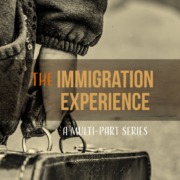

 Fortunately, my cousin managed over time to overcome the grief that moving to another country meant, although she confesses that it still hurts. But this is not the case for many people I have had the opportunity to help and who can get stuck in some of the stages of grief.
Fortunately, my cousin managed over time to overcome the grief that moving to another country meant, although she confesses that it still hurts. But this is not the case for many people I have had the opportunity to help and who can get stuck in some of the stages of grief.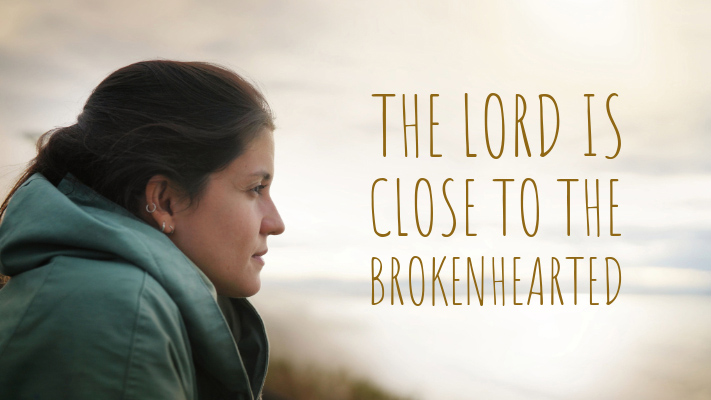
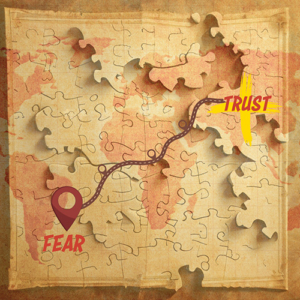 During these 25 years of my immigration story I have been by the side of many friends and family who have immigrated, and it has been wonderful to see how God developed his plan repeatedly, and of course, how He still does. I have been able to witness how He has been putting together everyone’s life puzzle according to His plan that He has prepared in advance.
During these 25 years of my immigration story I have been by the side of many friends and family who have immigrated, and it has been wonderful to see how God developed his plan repeatedly, and of course, how He still does. I have been able to witness how He has been putting together everyone’s life puzzle according to His plan that He has prepared in advance.
